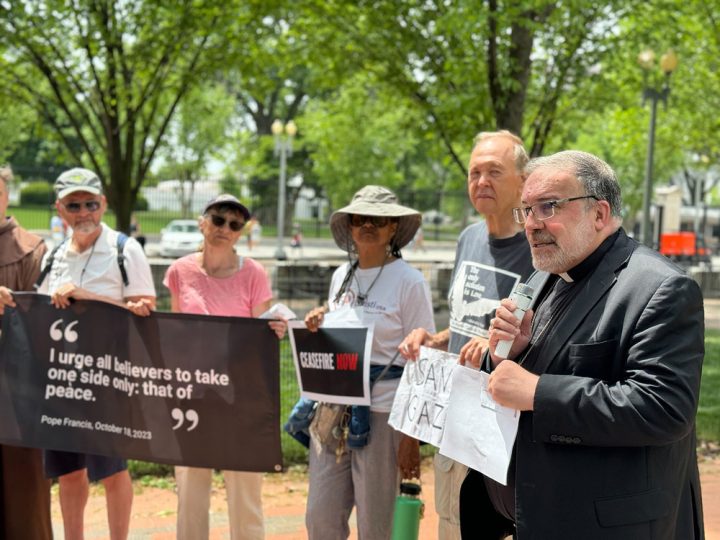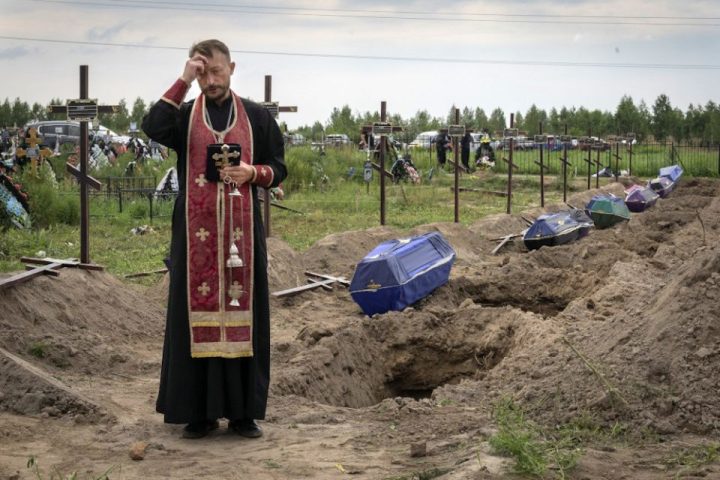
The decision to cripple the Office of Justice, Peace and Human Development at the U.S. bishops’ conference by cutting its staff in half raises profound questions of governance and mission for bishops. The fact that this move comes two weeks after the U.S. Conference of Catholic Bishops held its spring meeting at which no one mentioned such a drastic restructuring of the conference adds issues of trust and integrity to the issues of governance and mission.
The questions are not vague:
Was the attack on the Catholic Campaign for Human Development, leaked to The Pillar, a head fake to conceal this larger design?
The statement from U.S. bishops’ conference spokesperson Chieko Noguchi said « The reorganization will allow the Conference to align resources more closely with recent funding trends. » What are those funding trends and how do they relate specifically to the offices that have been slashed?
Is it time for there to be an outside audit of the bishops’ conference finances?
Why was such a major restructuring not discussed by the bishops as a whole at their recent meeting in Louisville, Kentucky? Did the Administrative Committee approve this restructuring? If not them, who?
Why was it decided to make sweeping cuts in one office rather than smaller, across-the-board cuts, in all offices?
Why was it decided to slash the staff that works on the ad extra, outward-facing work of the conference, leaving inward-facing offices like those that deal with liturgy, canon law, catechesis and education untouched?
Does the general secretary of the U.S. bishops’ conference work for all the bishops or just for those in leadership?
Do the bishops as a whole understand that this is the kind of decision you get when you select Archbishop Paul Coakley of Oklahoma City, rather than Cardinal Joseph Tobin of Newark, New Jersey, to serve as conference secretary, and therefore chair of the Committee on Priorities and Plans, as the bishops so voted in 2022?
Is it a coincidence that the executive director of the Napa Institute, Mark Rohlena, is a former high-ranking staffer at the Justice, Peace and Human Development Office?
Let’s stick with that last question. Coakley, who is the episcopal adviser for the Napa Institute, is poised to be elected president of the U.S. bishops’ conference in November 2025. The current vice president of the conference, Baltimore Archbishop William Lori, will be unable to move up to the top spot because of his age.
The issue facing the bishops in that election is now perfectly clear: Do they want a president of the conference who apparently agreed to slashing the office that helps the bishops pursue justice and peace? And who, apparently, engaged in subterfuge in Louisville?
On June 7, I raised the possibility that these kinds of cuts might be coming. In my curtain raiser for the bishops’ Louisville meeting, I noted:
The backsliding on the forward-looking direction of the council may not stop with the Catholic Campaign for Human Development. Two sources, one a former U.S. bishops’ conference staffer and the other a bishop, have told me they fear an assault on the Office of Justice, Peace and Human Development may be in the offing. The plan would be to severely cut back staff, if not eliminate the office which serves two committees, one on domestic justice and the other on international issues.
Once in Louisville, it quickly became evident that the vast majority of bishops supported the Catholic Campaign for Human Development and, so, most of us thought this rumored assault on the Justice, Peace and Human Development Office would have been abandoned. We were wrong.
To borrow a phrase from the Reagan years, the modus operandi at the bishops’ conference is to not let the right hand know what the far-right hand is doing.
The most stunning fact in all of this is the lack of consultation. The leadership of the conference sandbagged the bishops. Full stop. The rest of the bishops need to decide if they will swallow that or if they will push back. By November, when they next meet in plenary session, it will be too late. It may be too late now.



